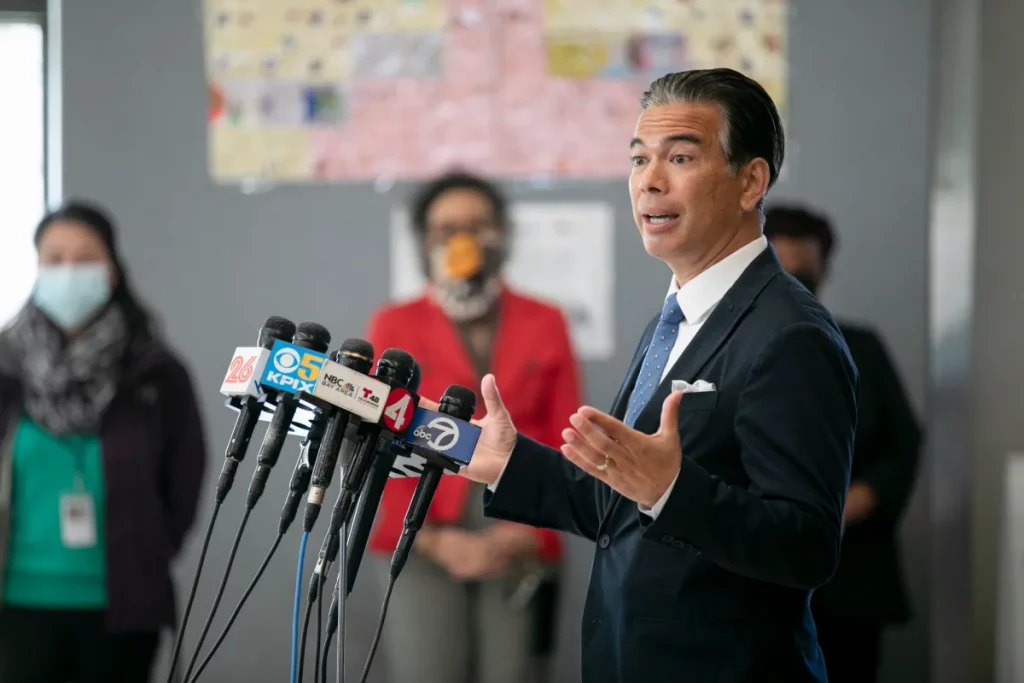Tuesday, March 8, 2022
Contact: (916) 210-6000, agpressoffice@doj.ca.gov
OAKLAND – California Attorney General Rob Bonta today issued an alert highlighting resources for financially distressed homeowners and warning homeowners of mortgage-related scams. As Californians continue to face financial hardship due to the impacts of COVID-19, many families have sought assistance in order to avoid foreclosure. In today’s alert, Attorney General Bonta shares resources for homeowners experiencing hardship and provides homeowners with tips on how to identify and avoid mortgage scams.
“COVID-19 has had a dire and lasting impact on the financial well-being of homeowners throughout the state. As families face an immense pressure to make their mortgage payments, many are looking for assistance, and scammers are taking notice,” said Attorney General Bonta. “There are critical and legitimate resources for mortgage relief, such as the California Housing Finance Agency’s California Mortgage Relief Program, that homeowners should turn to for help. Unfortunately, there are also individuals looking to capitalize on this moment of financial uncertainty for their own personal gain by scamming households in need. With today’s tips and resources, I urge California homeowners who are facing financial hardship to apply for help and protect themselves from scams.”
Resources and Assistance to Help You Keep Your Home
Homeowners who have fallen behind on mortgage payments due to COVID-19-related financial hardship may be eligible for relief through the California Housing Finance Agency’s (CalHFA) California Mortgage Relief Program. This program uses federal Homeowner Assistance Funds to help eligible homeowners cover missed mortgage payments during the COVID-19 pandemic. This is a free, one-time grant that does not need to be paid back if received. To find out if you are eligible and to apply, visit the California Mortgage Relief Program web page.
CalHFA sponsors other special programs for homeowners facing foreclosure that may help you retain your home or provide funds to relocate to new housing. Visit CalHFA’s Hardship Assistance Page to view additional options that may be available to you.
You may apply for mortgage assistance with free help from a housing counseling agency that has been approved by the U.S. Department of Housing and Urban Development (HUD). A housing counselor can assess your situation and help you prepare for discussions with your lender or loan servicer. To find a HUD-approved housing counseling agency near you, you can search HUD’s Foreclosure Avoidance Counseling database, or call 888-995-HOPE (4673).
Tips to Avoid Foreclosure Rescue Scams
- Know who you’re dealing with. Some scammers pretend to be working with your lender, mortgage servicer, or the government in order to get money or personal information from you. For example, they may misrepresent that they are working with the California Mortgage Relief Program, which is a government program to help homeowners cover mortgage payments missed during the COVID-19 pandemic. If someone reaches out to you offering services or asking for payment, make sure they really are who they say they are before you make any payments, give out any information, or sign any documents. If you have any doubt, contact the agency or company directly by looking up their information online.
- Don’t pay up-front fees for loan modification services. Foreclosure consultants and other companies offering loan modification services are prohibited by law from collecting money before services are performed. Avoid any company that demands an up-front fee prior to providing services.
- Don’t transfer your title or sell your house to a “foreclosure rescuer.” Beware that this is a scam to convince homeowners they can stay in their home as renters and buy their home back later. It might also be part of a fraudulent bankruptcy filing scam. Either way, once a scammer has the title to your home, they can evict you and keep the home for themselves.
- Don’t pay your mortgage payments to anyone other than your lender or loan servicer. Mortgage consultants should not advise you to redirect mortgages payments to their company, as they often keep the money for themselves. Never trust anyone else to make your mortgage payments for you.
- Never sign documents without reading them first. Many homeowners think they are signing documents for a loan modification or new loan to pay off the mortgage that they are behind on. Later, they discover that the paperwork they signed transferred the ownership of their home to someone who is now trying to evict them. Help yourself avoid this situation by taking your time to read through all documents before signing anything.
- Be suspicious of any guarantees made to stop the foreclosure process — no matter what your circumstances are. Only your mortgage lender or servicer has the discretion to stop foreclosure and grant a loan modification. No third party can guarantee or pre-approve your mortgage modification application.
- Avoid dealing with “attorney-backed” businesses or law offices that refuse to provide an attorney’s name or State Bar number. If an attorney-backed business or law office declines to provide essential information regarding the attorneys that work for them, they are likely hiding something. To protect yourself from shady actors, work only with attorneys that you are able to verify using the State Bar of California’s Attorney Search.
- Avoid companies offering “forensic loan audits” or “predatory lending investigations.” Predatory lending investigations and forensic loan audits analyze your mortgage loan file to determine your original lender’s compliance with state and federal mortgage lending laws. Scammers will oftentimes make false claims regarding these services, such as claiming that the audit is 100 percent free when it is not, or that it will provide you with the leverage you need to stay in your home – even if it is not true.
- Work with licensed/registered companies. You should always verify the license of anyone who is servicing or negotiating the terms of your mortgage loan. Mortgage lenders and servicers must be licensed by the Department of Financial Protection and Innovation. You can verify whether a company is licensed by using the Department of Financial Protection and Innovation’s financial services and mortgage lending licensees search tool. Most mortgage foreclosure consultants who offer to stop foreclosure or help you get a loan modification or other mortgage relief must register with the Attorney General. You can verify whether a foreclosure consultant is registered by using the California Department of Justice’s Is Your Foreclosure Consultant Registered? database.
Where to Report Fraud and File a Complaint
If you paid a company or mortgage consultant to stop foreclosure or help negotiate with your lender, but they did not do what they promised or you felt you were misled or defrauded, file a complaint with the following agencies:
- If your complaint is against a real estate broker or salesperson, visit the California Department of Real Estate (DRE) for details, or call the DRE Public Information Line at (877) 373-4542;
- If your complaint is against a mortgage loan broker, visit the California Department of Financial Protection and Innovation (DFPI) for information on how to file a complaint, or call DFPI’s Consumer Services Office at 866-275-2677;
- If your complaint is against an attorney, you may file a complaint through the State Bar of California’s website, or call their Telephone Resource Center at 800-843-9053;
- If you suspect criminal activity such as fraud, theft or embezzlement, you should also notify the consumer protection division of your local district attorney’s office; and
- You may also consider filing a lawsuit in small claims court. In small claims court, you represent yourself and can request a judgment for monetary damages of up to $10,000. Visit the California Courts Self-Help Center for further information.
In addition to filing a complaint with one of the agencies above, you may also file a complaint with the California Attorney General’s Office and the Federal Trade Commission.
Attorney General Bonta is committed to advancing housing access, affordability, and equity in California. Last December, Attorney General Bonta issued a consumer alert reminding tenants of their rights against housing discrimination. That same month, he also announced a $3.5 million judgment against Wedgewood, a Los Angeles county-based real estate investment company, resolving allegations that Wedgewood unlawfully evicted tenants from properties purchased at foreclosure sales. In November of 2021, Attorney General Bonta announced the creation of a Housing Strike Force within the California Department of Justice. The Housing Strike Force encourages Californians to send complaints or tips related to housing to housing@doj.ca.gov. Attorney General Bonta also launched a Housing Portal on DOJ’s website with resources and information for California homeowners and tenants.

